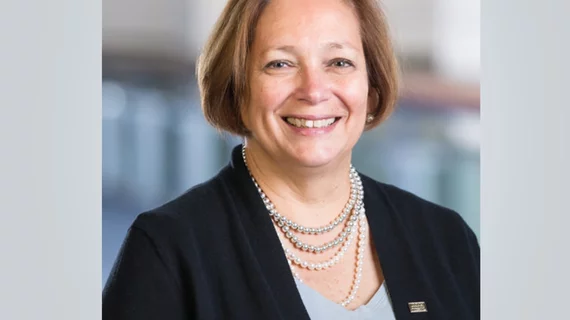Valerie Jackson named president of RSNA
Valerie P. Jackson, MD, was named president of the Radiological Society of North America (RSNA) Board of Directors, Wednesday, Nov. 28, at the Society's Annual Meeting in Chicago.
Known among the radiology community as an expert in the field of breast imaging, Jackson has been the executive director of the American Board of Radiology (ABR) since 2014. She is also professor Emeritus at the Indiana University School of Medicine, in Bloomington from where she received her medical degree in 1978 and completed her medical residency at the university’s medical center in 1982.
"RSNA continues to grow as a world leader in informatics and has become a critical convener for artificial intelligence, machine learning and deep learning,” Jackson said in the release. “While the focus of my career has been predominantly in education, I plan to work hard to continue to advance RSNA in all of these areas."
Jackson is the author of numerous books and peer-reviewed articles with an emphasis on breast imaging and radiologic education and has held editorial positions for numerous journals.
She has also been a course director and presenter at the RSNA Faculty Development Workshop and is a highly regarded lecturer and educator, having given more than 320 scientific and educational presentations at meetings worldwide, according to the release.
An RSNA member since 1982, she has served the society in numerous roles and has held committee or leadership position in the American College of Radiology (ACR) and the Indiana Radiological Society (IRS), among many others.

